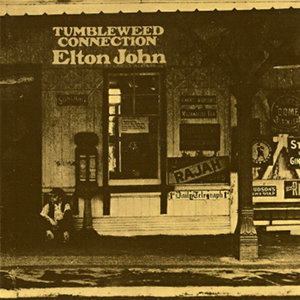
..:: audio-music dot info ::.. |
| A l b u m D e t a i l s |
 |
Label: | DMJ Records |
| Released: | 1970.10.30 | |
| Time: |
46:56 |
|
| Category: | Pop/Rock | |
| Producer(s): | Gus Dudgeon | |
| Rating: | ||
| Media type: | CD |
|
| Web address: | www.eltonjohn.com | |
| Appears with: | ||
| Purchase date: | 2012 | |
| Price in €: | 1,00 | |
| S o n g s , T r a c k s |
| A r t i s t s , P e r s o n n e l |
| C o m m e n t s , N o t e s |
Bring your family down to the riversideThe several love songs on the album express old fashioned sentiments and one wonders if the context is understood by now or if the song represents a departure from the historical approach.
Look to the east to see where the fat stock hide
Behind four walls of stone the rich man sleeps
It's time we put the flame torch to their keep
Burn down the mission
If we're gonna stay alive
Watch the black smoke fly to heaven
See the red flame light the sky.
| L y r i c s |
| M P 3 S a m p l e s |